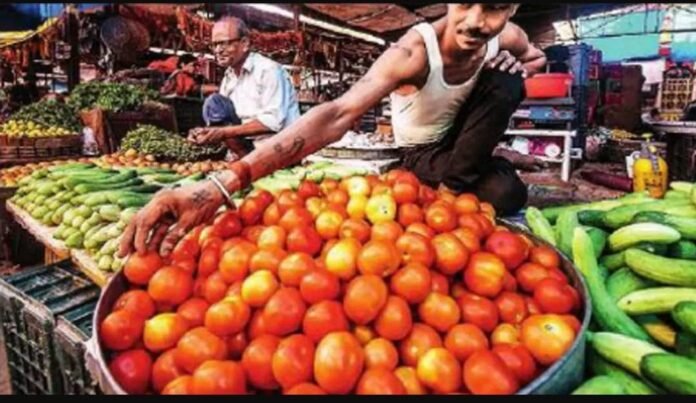The tomato prices in Mumbai have soared to an all-time high of Rs 200 per kilogram, leaving consumers grappling with increased financial strain as some stalls are forced to shut down due to the dwindling number of buyers.
The relentless surge in tomato prices has placed a heavy burden on the pockets of the average consumer, causing concern among households and businesses alike. The situation has been exacerbated by various factors, including supply chain disruptions and adverse weather conditions that have impacted tomato cultivation.
Farmers, on one hand, are facing challenges in meeting the demand due to lower yields, attributed partly to unseasonal rains and pest infestations. This scarcity in the tomato market has led to a surge in prices, leaving consumers searching for affordable alternatives.
As the demand-supply gap continues to widen, the effects are being felt across the city’s marketplaces. Some small-scale vendors have been compelled to close their stalls temporarily, unable to cope with the high procurement costs and a lack of buyers. The scarcity of tomatoes has made them a luxury for many, causing consumers to rethink their purchase decisions and shift to other cost-effective substitutes.
With the tomato scarcity affecting the restaurant industry as well, owners are facing challenges in maintaining their menu offerings while keeping prices within reach of their customers. As a result, some eateries have opted to limit or even remove tomato-based dishes from their menus temporarily until the prices stabilize.
Government authorities and agricultural experts are closely monitoring the situation, trying to identify long-term solutions to stabilize tomato prices and mitigate the impact on consumers and businesses. Initiatives to promote sustainable farming practices, improve supply chain infrastructure, and provide financial support to farmers are being discussed as potential measures to alleviate the crisis.
Meanwhile, consumers are advised to consider alternate choices and embrace seasonal vegetables that are relatively more affordable, helping them maintain a balanced diet without compromising on nutrition.
Although the current situation is challenging, it is hoped that collective efforts from all stakeholders, including farmers, traders, and policymakers, will eventually restore equilibrium to the tomato market. Until then, it is essential for both consumers and businesses to adapt to the changing circumstances and explore viable alternatives to cope with the escalating prices.
As the city navigates through this tomato price crisis, resilience, and innovation will undoubtedly play a significant role in mitigating the impact on the daily lives of its residents and businesses.

